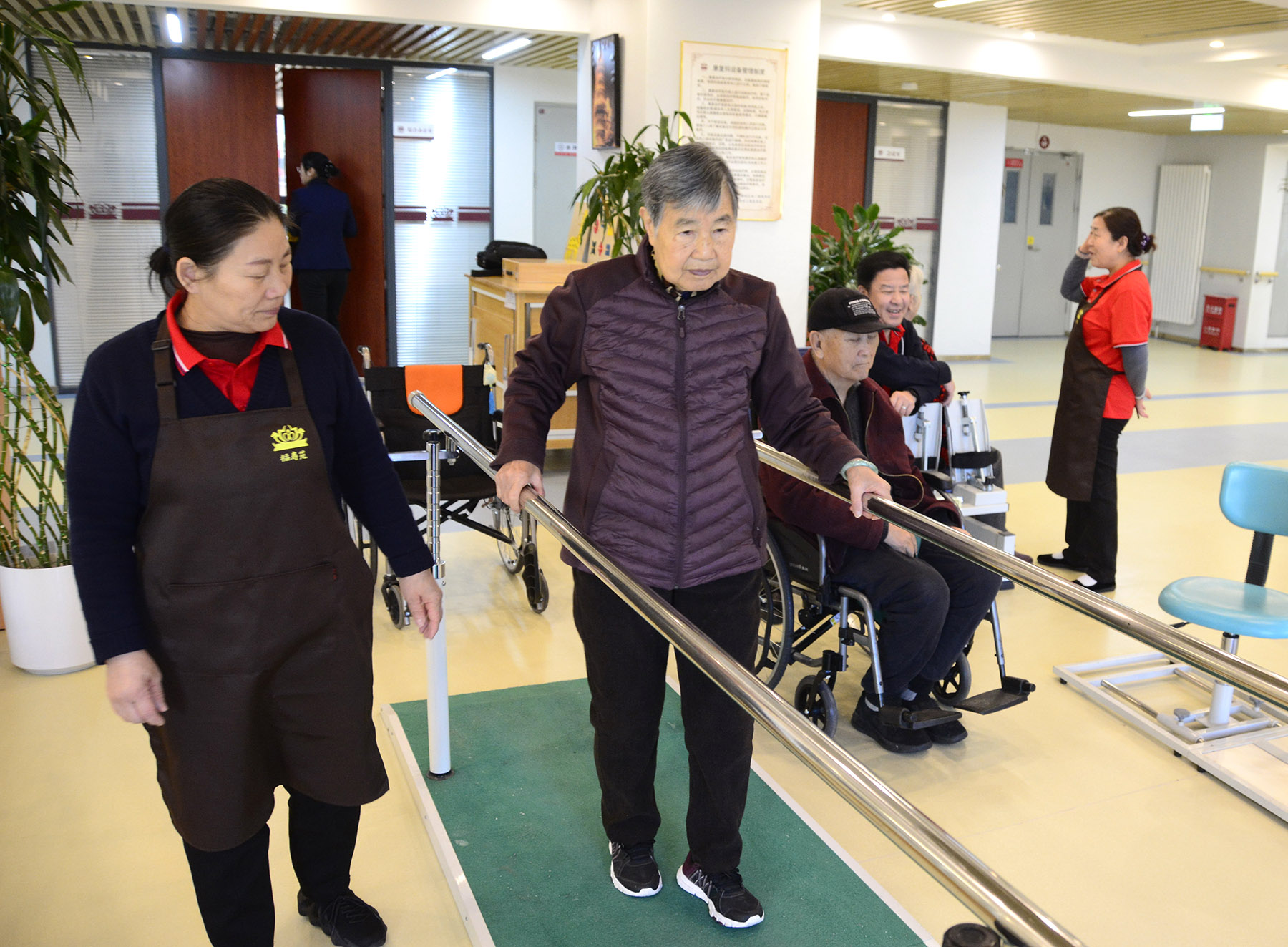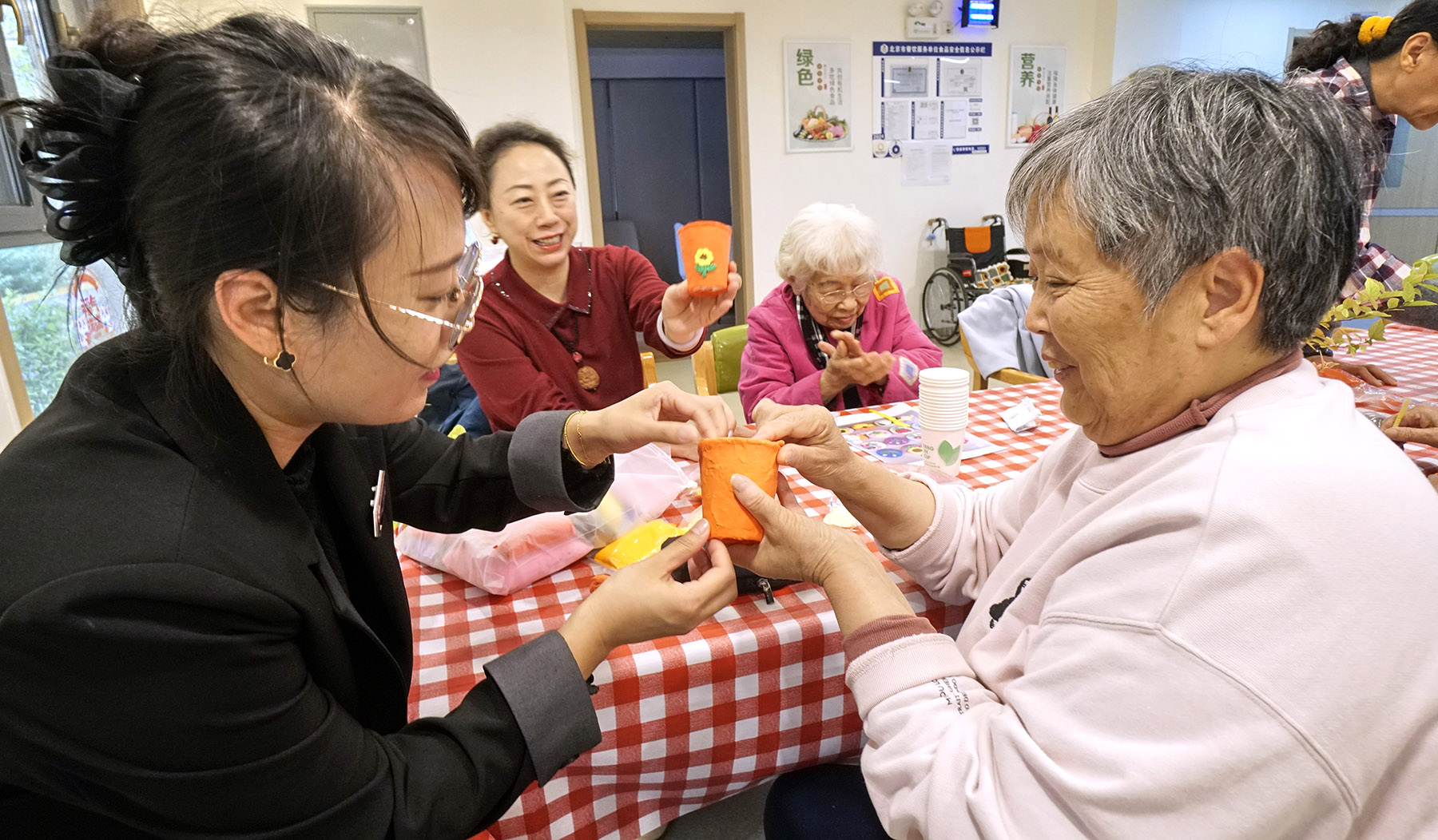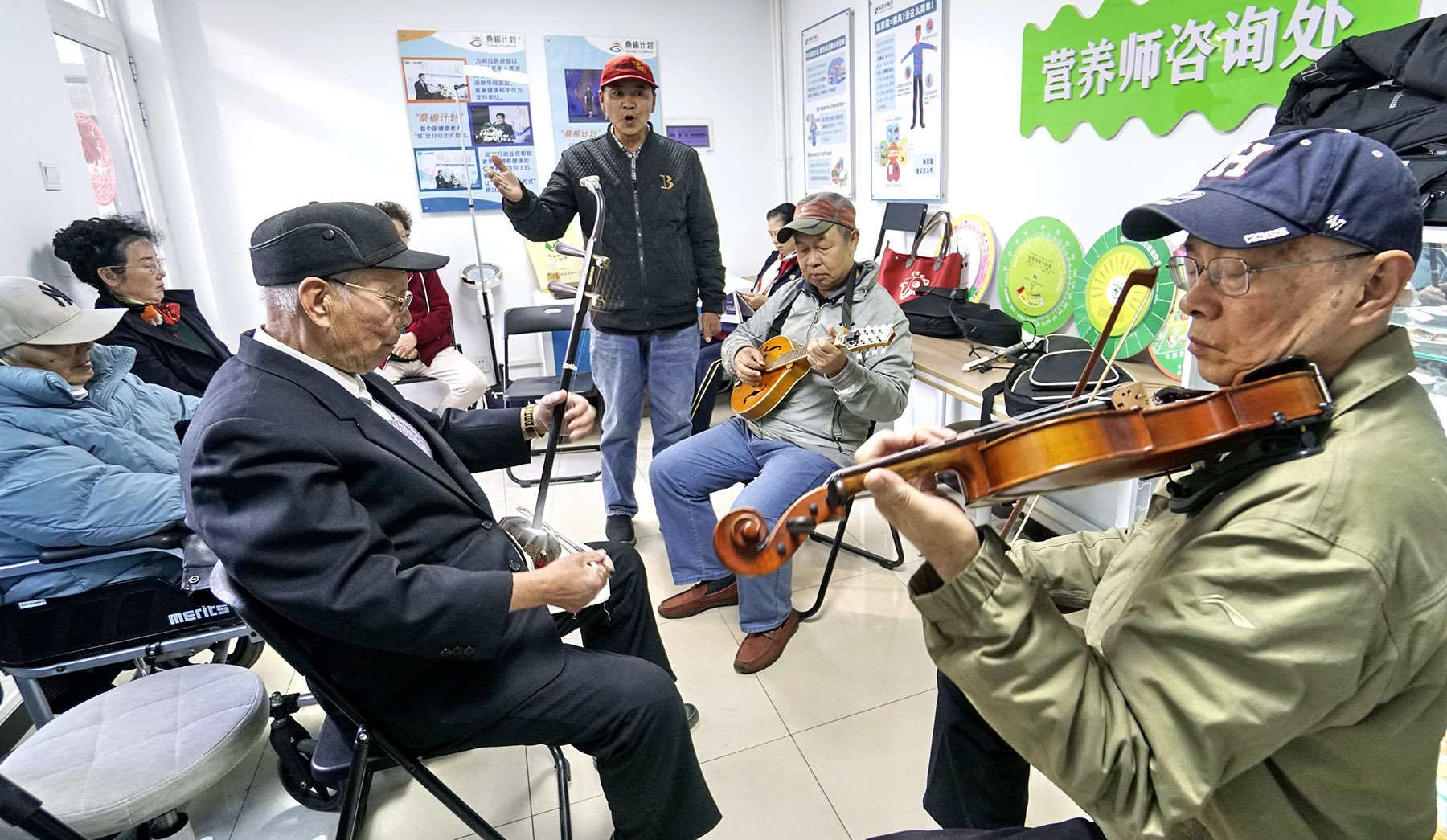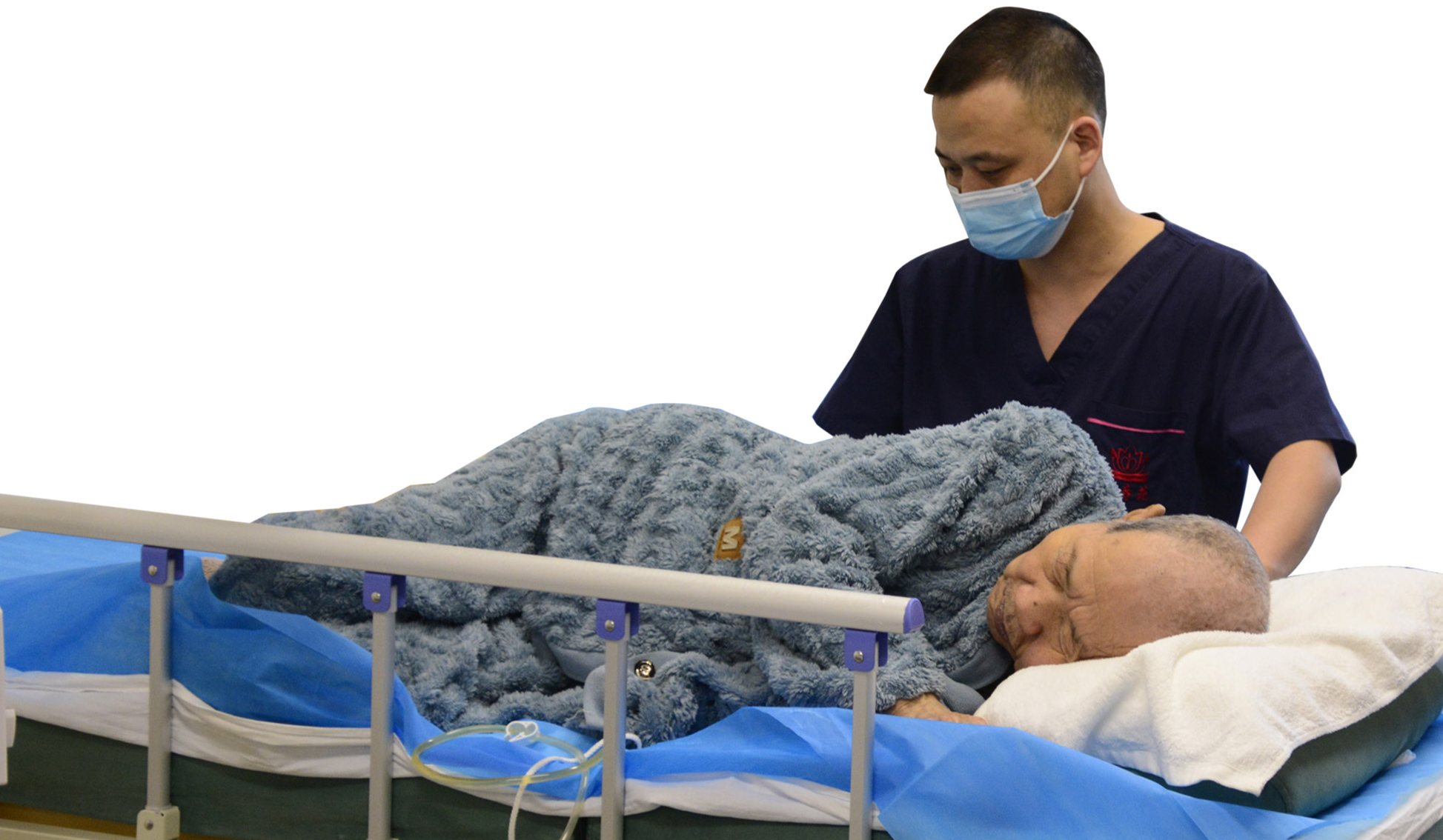Beijing's innovative programs take lead in fighting cognitive decline

On a Thursday morning at Beijing's Baizhifang Community Health Center, 80-year-old Qian Zhirong carefully folds origami cranes under a doctor's guidance.
Six months earlier, she had experienced growing anxiety about behavior such as repeatedly checking light switches, and feared the onset of early dementia.
Today, her laughter echoes through a "memory clinic" where cognitive screening has become as routine as blood pressure checks. She also practices "finger gymnastics" on a daily basis — a deceptively simple exercise that researchers say helps preserve neural pathways.
These methods represent China's new front-line tactics in battling cognitive decline, with ordinary residents participating in Beijing's ambitious plan to establish over 20 community-based memory clinics by year's end.
READ MORE: 'Silver economy' shows promising potential
With over 16 million dementia patients and others experiencing mild cognitive impairment, the country's "silver tsunami "poses unprecedented challenges. In Beijing, health authorities are bringing specialized care to residents' doorsteps through hospital-community partnerships.
At Baizhifang center, more than 100 seniors have undergone assessments since the beginning of this year. The process is streamlined, with initial screenings using standardized tests done at the community level. More complex cases are referred to Xuanwu Hospital or other specialist hospitals.

Post-diagnosis, patients return for customized rehabilitation — from memory games to resistance training.
Wang Yang, an associate professor at Peking University's China Center for Health Development Studies, said stable communities with established family doctor systems are ideal testing grounds. They transform primary care resources into measurable health gains.
The approach calms needless fears, like those experienced by Qian. "I'd stare at my door, unsure if I'd locked it," she recalled. Xuanwu Hospital's assessments revealed Qian was undergoing normal aging — a critical distinction.
"Many people panic over occasional forgetfulness. Communities should recognize true warning signs, which are symptoms like getting lost in familiar areas, or struggling with basic math," said Wang Hong, a professional caregiver who has worked to help Alzheimer patients for nearly two decades.
"We prescribe 'homework' (such as) daily mind-body exercises tracked through WeChat group chats, and they really work," Wang said, adding that family support also plays an important role in a patient's condition.
Michael Phillips, director of the Suicide Research and Prevention Center at the Shanghai Mental Health Center, said how families treat individuals with mental disorders significantly impacts their prognosis.
"Our research concludes that when families exhibit higher levels of criticism and resentment, patients show increased relapse rates and poorer treatment outcomes," he said.

"Conversely, families demonstrating more adaptability and a supportive, attentive attitude tend to positively benefit the patient's prognosis."
Wang Yichun, a psychological counselor in Shanghai, said in mental health healing, medications and psychotherapy alone are insufficient, and unsupportive environments often inflict secondary harm.
"Patients rely fundamentally on family understanding and patience, while community acceptance and resources bridge isolation. True recovery requires families and society to unite, offering warmth and strength to make healing achievable and sustainable," Wang said.
In Shanghai, 72-year-old Lu Fengjie embodies this philosophy. After his Alzheimer's diagnosis, his daughter transformed their apartment into a "memory sanctuary".Family photos were attached to cabinets, a favorite calligraphy brush was used to mark a wall calendar tracking his medication intake, and nightly storytelling sessions about his decades as a railway engineer were held.
"We stopped correcting his confusion about dates," explains his son Lu Min, 45. "Instead, we touch on his vivid memories of 1980s train routes."
Six months into this tailored care, his cognitive scores stabilized, defying charts typically showing a decline.
Nearby, community volunteers replicate this approach through "reminiscence libraries" — curated boxes of memorabilia and cassette tapes of old songs that spark lucid moments in even advanced patients.

Architects of dignity
Beijing's dementia prevention framework closely aligns with the WHO's global action plan on the public health response to dementia, while incorporating its own adaptations.
Municipal guidelines, for instance, mandate the integration of traditional Chinese medicine diagnostics into cognitive assessments at community health stations.
Beijing has also pioneered cognitive rehabilitation hubs within residential committees, pairing AI-driven early screening tools with neighborhood volunteer networks to help seniors. This hybrid model also addresses China's rapidly aging population and familial caregiving traditions.
"Unlike the WHO's emphasis on pharmaceutical interventions, Beijing's dementia-friendly communities prioritize multigenerational cohabitation incentives and dementia literacy campaigns, reflecting Confucian values of familial responsibility," said Fa Cuiwen, a Tsinghua University medical sociologist.
"These innovations demonstrate how global health frameworks gain traction through culturally grounded implementation rather than direct policy transplantation," she said.
The "cognitive playground" is an innovation created by a community in Beijing's Sunhe town, Chaoyang district. By day, retirees navigate obstacle courses designed by neuroscientists — from stepping stones numbered in reverse, to memory exercises, and puzzle walls matching herbal medicine scents.
At dusk, the space is turned into an education hub, where pharmacy interns teach seniors to spot medication risks, and children earn "dementia ally" badges by learning communication techniques.
"My grandson now speaks slower and uses my old nickname," marvels 78-year-old patient Guo Wenjuan. "Before, he'd just sigh when I forgot things."

Investing in communities
Arthur Kleinman, a world-renowned psychiatrist and anthropologist at Harvard University, said a functional mental health ecosystem cannot thrive through institutionalization alone, but also demands investment in community networks that preempt crises.
"When hospitals close without parallel investment in neighborhood clinics, peer-support circles, and crisis de-escalation training for police, we trade one failure for another: overflowing jails replacing overcrowded wards," he told China Daily. "True reform lies not in abolishing institutions, but in ensuring communities become the first line of defense and sustained support."
Kleinman believes mental health systems must mirror the "cultural topography" they serve.
"Training grandmothers in rural villages as narrative therapists or adapting traditional mindfulness for dementia care isn't compromise; it's how global frameworks become locally vital," he said.
"The future of mental healthcare belongs to hybrid practitioners — village pharmacists trained to detect early cognitive decline, delivery drivers equipped with a crisis hotline, and retired teachers leading grief circles. Psychiatry's role isn't diminished but refocused, and supervising these distributed networks rather than gatekeeping care," he added.
Jin Enjing was a geriatrician at Harvard University before returning to China decades ago to improve care for Alzheimer's patients in Beijing.
"Effective dementia care begins by reimagining communal spaces as extensions of home," she said.
ALSO READ: Care centers improve elderly life quality
"We design neighborhoods with sensory anchors — gardens where patients cultivate herbs they recognize from childhood kitchens, communal kitchens with adaptive tools that honor muscle memory, and acoustic landscapes that buffer urban noise without isolating residents from life's rhythms. These aren't clinical compromises; they're bridges to preserved personhood," she said.
Jin said true community support transcends care facilities and requires promoting understanding of dementia in schools, and training pharmacists to spot early cognitive changes during medication consultations. It also extends to empowering dance groups for the elderly to become peer support networks.
"When a society stops viewing care as a private burden, parks become therapy spaces and checkout clerks become front-line observers," she said.
As the Beijing sunset gilds Baizhifang's "memory garden" where patients tend plants labeled with therapeutic mnemonics, Qian shares her newfound mantra.
"Growing old is not about fearing lost memories. It is about planting new ones, day by day," she said.
Contact the writer at weiwangyu@chinadaily.com.cn


